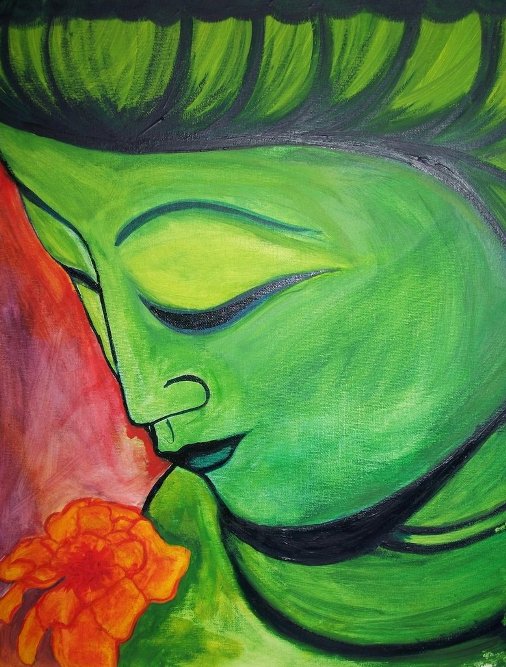
More than 2,500 years ago, Gautama Buddha was born in Lumbini, Nepal.
It is said that Buddha took seven steps forward, right after his birth, and lotus flowers arose from each footstep. An astrologer predicted that Buddha might choose to become a hermit.
Although his father, the king Suddhodana, was determined to stand against the prophecy, Gautama eventually fulfilled it. Gautama Buddha escaped from his father’s palace and headed out to find the solution to end the suffering of mankind. The place from which his wisdom emanated and where he discovered the path to end suffering is now called Bodh Gaya, in Northern India. The tree under which he sat is called “the Bodhi tree.”
The life story of Gautama Buddha is important because it is said to have changed the history of humankind. It comprises three crucial events: the Buddha’s birth, his enlightenment under the Bodhi tree, and his death. Buddha day, or Vesak, celebrates these three major occasions, which are said to have happened on the same calendar day.
Buddha day is annually celebrated on different dates in the lunar calendar by various schools of Buddhism. In most of Asia, it is celebrated during the first full moon of May. Today, May 10th, the Mahayana school is observing Vesak. They celebrate it by hanging lanterns (a representation of the Buddha’s enlightenment), eating vegetarian food, helping the poor, not killing insects or animals, chanting and praying, and making offerings.
This day is significant because it is believed to be an auspicious day. Since it encompasses three powerful events from the Buddha’s life, our karmic actions on this day are multiplied by one thousand. If we do good, we will earn more merit in the future and in our next lives. If we do unwholesome deeds, they will return to us as well. Because of this, the grandest celebration that takes place on Vesak is the practice of giving and doing good.
We might not all have access to a Buddhist temple right now, and we might even not be Buddhists to begin with. But, the deeper meaning of Vesak is valuable to all, which is stopping ourselves from partaking in any unwholesome action.
If we take a moment of solitary reflection, we’d realize that most of our actions aren’t mindful. One of the most important things I have learned during my Buddhist retreats in India is how to shed awareness on my day-to-day actions.
To this day, I look at the ground on which I’m walking so I wouldn’t kill any moving ants, earthworms, or beetles by mistake. It doesn’t matter whether I believe in reincarnation or in Karma, what matters is my kindness toward other living beings—whether it’s an ant, a flower, or a human. There’s an incomparable sense of joy that emanates from my body when I protect another living being’s life or when I’m kind toward them. This joy only proves to me that what the Buddha taught is worth observation.
The Buddha is not a celestial being. He is a human being who discovered the roots of suffering and the way out of them. The most valuable thing we can learn from him is the non-violence that he preached about. Death is a natural cycle in life, but we’re causing most of it. And death isn’t always physical—we destroy each other physically, mentally, and emotionally on a daily basis through our actions, without realizing. We’re even destroying the planet on which we’re living.
Hate and bad deeds are never the solution. Whoever thinks he can change the world through hate is someone who hasn’t truly experienced love. On this day, let’s behold the full moon and take a moment to reflect on our actions. Let’s try to understand that we need to expel greed, hate, and selfishness to make a change in this world.
Know that we are the societies that we despise. If we want to change society, we have to start with ourselves and acknowledge the motivation behind our actions.
Vesak is a celebration that proves to us that we are all Buddhas at our core. Enlightenment is not a destination, it’s our very essence, but it can be left dormant and overshadowed by our hateful actions.
Let’s celebrate today by being determined to tap into this essence and experience the Buddhas that we are.
Happy Buddha Purnima.
Source:
What Makes You Not a Buddhist, by Dzongsar Jamyang Khyentse.
Bonus:
Author: Elyane Youssef

No comments:
Post a Comment